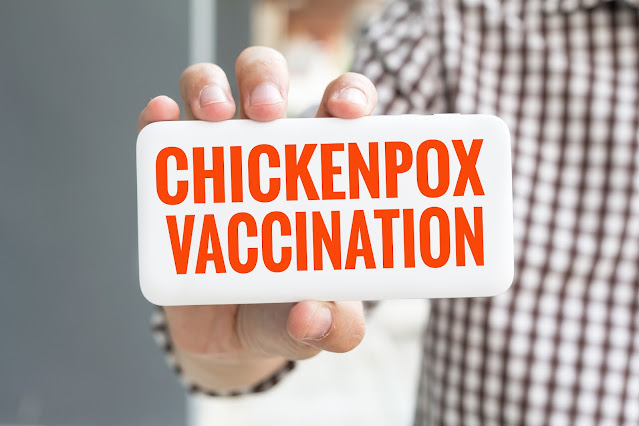What is chickenpox and why do we vaccinate against it?
Chickenpox is a disease caused by the varicella-zoster virus, the same virus that causes shingles in older adults. It’s extremely contagious and can easily spread from person to person. This can be through direct contact with the blisters, mucus, or saliva of someone who is infected. It can also be spread through droplets in the air created by coughing or sneezing.
Who is at Risk from Chickenpox?
People of any age can
catch chickenpox, but most cases occur in children. Children who catch it tend
to have milder symptoms than adults or in people who are considered high risk.
High risk groups include the elderly, pregnant women, those with compromised
immune systems, and newborns.
High risk groups are
more likely to experience more severe symptoms. They may even develop serious
complications that can cause life-changing symptoms or even death.
Chickenpox Symptoms
At first, those infected
will feel a bit like they have a cold. These symptoms include a low-grade
fever, sinus congestion, tiredness, coughing, and headache.
Within a couple of days,
a rash will start to form. The rash occurs in three stages, but may not happen
at the same time so it’s possible to experience all three stages at once.
In the first stage, a
pink or red, bumpy rash will spread across the body, most commonly on the
torso, scalp, and armpits. In the second stage, itchy blisters will form and
start to break and lead. A few days later, the blisters will start to scab and
dry out. The final stage usually takes the longest.
Chickenpox Complications
Serious complications
from chickenpox are rare, but they do happen in both at risk groups and in
otherwise healthy children and adults. In fact, a large percentage of
hospitalizations are healthy children under the age of 5.
Life-threatening
complications such as pneumonia or brain inflammation can be caused by
chickenpox.
Other Chickenpox Complications:
- Bacterial infections of the
skin and soft tissue
- Blood infections
- Streptococcal infections
- Bleeding problems
- Severe dehydration
In pregnant women,
chicken pox can harm the foetus if the mother catches the virus during
pregnancy. The risk to the baby is higher in the later stages of the pregnancy
and shortly after birth.
How effective is the chickenpox vaccine?
Chickenpox is an easily
preventable disease with the highly effective vaccine. It will prevent most
people from getting chickenpox, but in the few cases where it doesn’t the
symptoms will be far milder than they would be otherwise.
Not only will the
vaccine save children from suffering from the uncomfortable symptoms, but it will
protect high risk groups against infection. Many people are unable to get the
vaccine because of health conditions, so they rely on herd immunity.
Where Can I Get the
Chickenpox Vaccine?
Despite its
effectiveness, the chickenpox vaccine is not generally available on the NHS.
However, it can be easily and conveniently obtained through Pearl Chemist
Group’s chickenpox vaccination service in Epsom. To book the chickenpox vaccine
in Streatham or to find out the chickenpox vaccine cost in Wimbledon, contact
us or visit our website today.



Comments
Post a Comment